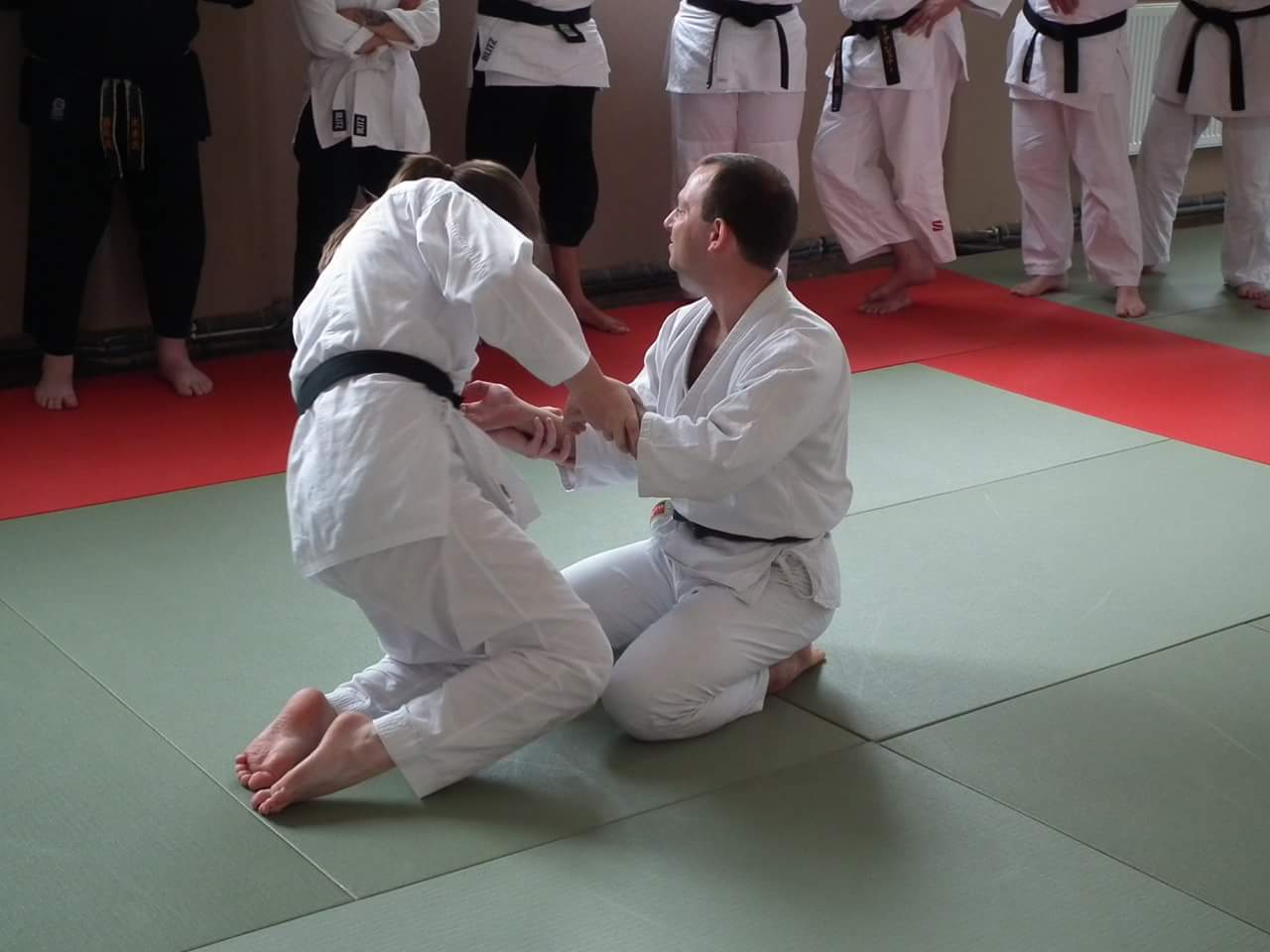The reasons why I started practising Aikido, was due to its unusual philosophy, its dynamic movement, co-ordination and harmony between the partners as well as integration of mind and body for the practitioner.
As I had the tremendous luck to have found excellent teachers during my relatively few years of training, I was encouraged to search deeper into aikido’s philosophy as propounded by its founder, Morihei Ueshiba O Sensei. I therefore had to chance to delve into the founder’s writings and tried to understand how and what aikido means to us. I knew that O Sensei was a very spiritual person and that his writings were reputed to be obscure. However, the main theme of self-development, knowledge of self and the process of unification of the human being with nature, were evident throughout his writings. Although I found the entire canon challenging, with perseverance and careful study I was rewarded with some interesting insights.
As my understanding on the nature of aikido slowly increased, so did my curiosity of the martial art that preceded its development, namely Daito-Ryu Aiki-Jujutsu, naturally arise. How did the aikido techniques develop from Daito-Ryu Aiki-Jujutsu? What is Aiki? How can Aiki be applied? Can the knowledge of the predecessor help understand aikido better?
Last summer, through a contact of my teacher, Quentin Cooke, I was informed of a small Daito-Ryu Aiki-Jujutsu study group led by Phil Eyers that follows the Roppokai tradition and Seigo Okamoto sensei. This group has been inviting two American teachers, Howard Popkin and Joe Brogna sensei (personal students of the late Okamoto sensei), for the last few years and the interest for this martial art was increasing among the aikido population. I also found out that another great sensei, Hiroshi Ikeda, was interested in their teachings and so I immediately seized the chance and took part in the seminar.
The format of the seminar was unusual; Howard and Joe shared the teaching during the weekend of training, but it was done without much formality. It reminded me more of a workshop than a traditional training practice! The sensei were extremely friendly and very understanding. To comprehend even the basic principles took great effort from us and we needed time to gain even a modicum of understanding. Joe and Howard’s humour and teaching approach was exactly what was needed to provide us with encouragement.
Again and again Joe and Howard would approach us, give a hint or share an insight from their own training and then watched as we tried to copy their movements and develop a feel for the technique.
It was refreshing to realise how the body and mind work in unison in a variety of ways and utilising a few underlying principles, you are becoming capable of generating internal power and controlling the uke without injury (although the capability of an immediate switch to deadly technique did not pass unnoticed)!
Speaking of different approaches, after the seminar I was compelled to search deeper about the intimate relationship between aikido and Daito-Ryu Aiki-Jujutsu. Thankfully there is enough information available on several websites that adequately describe their history, lineage and evolution. Although there are marked differences in their mechanistic approach in the way technique is applied and the outcome that is desired, both arts share underlying principles. At the highest levels of Daito-Ryu Aiki-Jujutsu, the application of Aiki is manifested in all movement and you can see (feel?) how aikido is similarly linked if practised appropriately. At the same time, both arts share the same spiritual background and indeed one can discover quotes from O Sensei that can be traced right back to Daito-Ryu Aiki-Jujutsu!
Ultimately, what I loved about both sensei was their passion for Daito-Ryu Aiki-Jujutsu and their willingness to share knowledge with those who were interested. I would encourage everyone with a healthy curiosity of the evolution of aikido to attend the seminar. The study of Daito-Ryu Aiki-Jujutsu will certainly enrich one’s aikido, help answer questions about the former’s efficacy, close possible gaps in one’s knowledge and above all, be among a thriving community that believes the same ideas and shares the same goals!
Nikos Papanikolaou.

